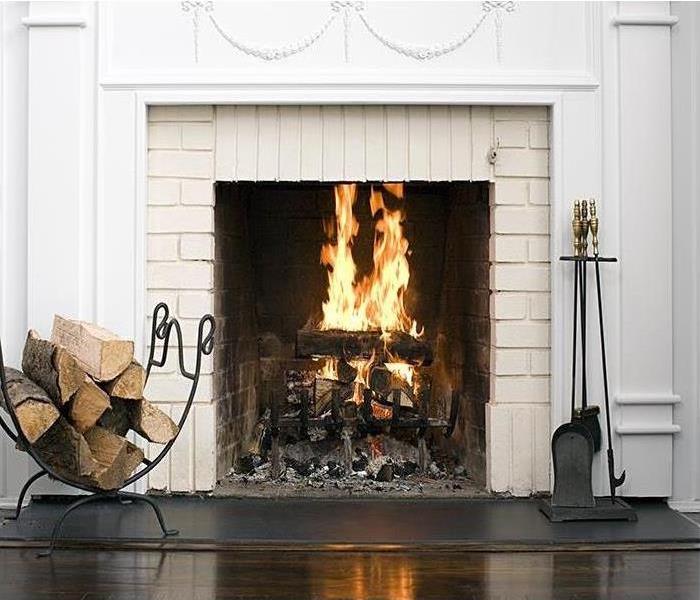Preventing Smoke Damage From Your Fireplace
12/21/2017 (Permalink)
The weather outside is frightful and there is nothing better than curling up on a cold night to the warm glow of a fireplace. Unfortunately, fireplaces can also pose a smoke and fire hazard to your home. There is, however, nothing particularly soothing about unwanted fireplace smoke puffs that spill into the home while the fire is burning. Fires can also start when hot embers from the fire catch on residue from unclean chimneys.
If you are someone who likes to use their fireplace during the winter here are a few tips to prevent smoke or fire damage to your home.
Nobody likes a drafty house, but a house that is relatively airtight may not be able to supply enough outside air to the fire, resulting in a negative pressure in the home. Well-insulated homes can benefit from an outside air supply vent installed in the fireplace to satisfy the fire's needs.
Exhaust fans—like in kitchens or in forced air heating systems—can cause negative pressure, which will drag the smoke from your fireplace into your home. Turn off exhaust fans before settling down by the fire.
Only use your fireplace when it is cold out. The difference between the indoor and outdoor air helps the smoke draft properly. If it is too warm the smoke will have nowhere to go.
Make sure that the damper is open all the way. Sometimes there is a rain cap or even another damper on top of the chimney, which may be obstructed and needs attention. This can also be a fire hazard, so be careful.
Wet firewood can create heavy smoke. Make sure you only use seasoned firewood that is dry in your fireplace.
If you experience smoke or fire damage from your fireplace this winter contact the experts at SERVPRO of Southwest Brooklyn. Their smoke damage experts can clean your furniture, curtains, walls, and floors to get rid of not only the black soot, but the foul odor it leaves behind.





 24/7 Emergency Service
24/7 Emergency Service
